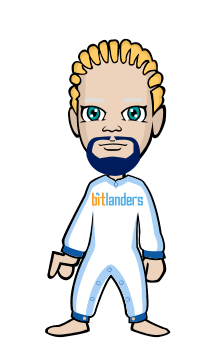Academic research could be strengthened by thinking more and doing less.
There was a stretch of time when I would spend a week or so each summer visiting some friends who were academic colleagues. Typically, our days were structured around generous amounts of “schmooze” time. First, there was the requisite two-hour breakfast at a quaint, hole-in-the-wall restaurant. These meetings were about more than sharing a meal; we covered a fair amount of ground over coffee, eggs, and whole-wheat toast. We hashed out serious questions related to our areas of scientific interests, argued over the changing politics of academic research, and strayed unflinchingly and irreverently into topics for which we have no particular claim to insight or expertise. Without breaking our conversational stride, we would eventually make our way to the university (a 20 minute drive), stopping for coffee along the way. From parking the car to entering the lab, we’d make another pit stop for coffee and decide when and where to have lunch.

Truth be told, my visits did disrupts my colleagues’ typical daily workflows. For the week or so I was in town, and to the extent that we could, we cleared our calendars of the usual meetings, conference calls, emails, and manuscript preparation and grant writing time. To make up for lost time, we stayed up too late and woke up too early—recalling the sleep deprivation that led to soaring bouts of creativity during our student and postdoc days. We indulged in those freewheeling discussions in which an out-of-left-field comment could completely alter the way we were pursuing a problem. But time is an expensive commodity and the freedom to really talk things through comes at a price.
I took heart thinking that when my visit ended, at least at breakfast, the spirit of “think more, do less” would live on.
Sadly, our increasing academic seniority—along with the requisite increase in busy work and “do more” atmosphere of science—saw my annual visits go the way of the Dodo. Clearing multiple calendars for week-long visits is now a rare kind of celestial event. Now, our exchanges more often take place via emails written while waiting for planes. Recent reports from my friends is that breakfast has become a special event.
And what about the science?
I don’t believe that doing more is always better. Paradoxically, doing more can lead to fewer impactful results—smaller questions, smaller insights, and smaller advances in knowledge. It is unfortunate that just about every professional reward and incentive in academic science requires that more and more be piled onto ever-crowded plates. Can supervising more trainees, being named on more grants, and appearing as an author on more papers really equate to being more productive?
The anecdotes of researchers at some of the most productive institutions during halcyon times of progress recall a complex web of time in the lab, competitive sporting games, whimsical parties, mountain hikes, and walks on the beach. There seemed to be a fair amount of wine, lots of long dinners, and plenty of bull sessions.
Of course, in reminiscing on my own breakfast and lunch meetings lost, I may well be romanticizing the past. Academic science has long required a highly competitive drive and a ‘round the clock work ethic.
But, I’d argue, it still requires time to think. Time to talk.
Despite the dominant image of the lone-wolf genius solitarily toiling away in the lab, science tends to be quite social. Serendipity, the oft-credited god of scientific progress, is rarely about findings. When it occurs, it is about the questions. It comes from the fine-combing of results or bouncing of ideas off of our friends and colleagues who supply fresh ears that helps us break new ground. An unexpected observation arising because someone else is taking the time to understand our stumbling blocks can set a stalled project on a fresh course.
During those lost summer weeks, my colleagues and I recalled what drew us to science. We focused on ideas. We laughed a lot. We weathered accusations that we were “slacking off” knowing full well that we’d more than make up for our time away from the lab by bringing in fresh perspectives.
To my mind, science benefits when we think more and do less. I say we start with breakfast.



